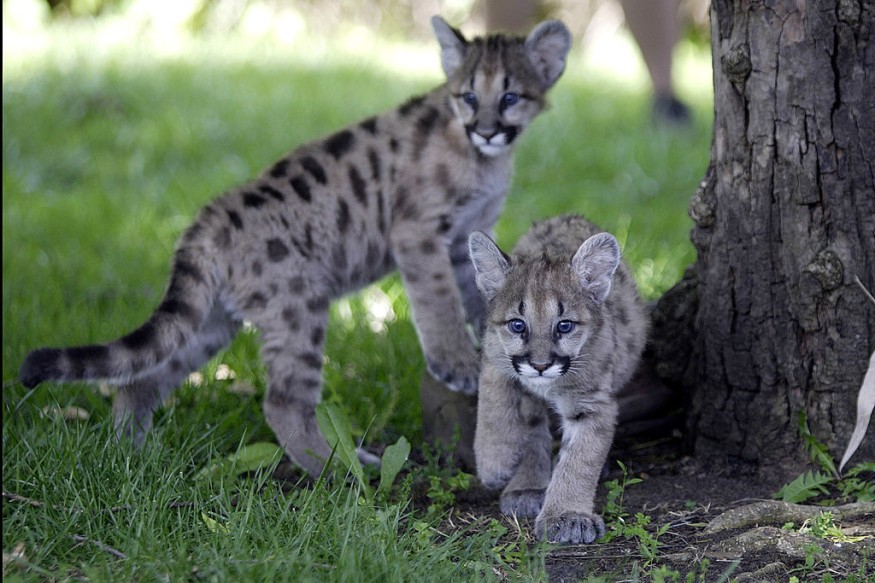
Two mountain lion kittens discovered last November in a Thousand Oaks office complex died a few days after testing positive of rat poison. The female, wild felines were just 6 weeks old, the youngest to test positive for the poisons.
A necropsy report shows that two kittens, P-100 and P-102 have three types of rat poison in their systems, according to National Park Service (NPS) officials. The cubs were found with three different types of anticoagulant rodenticide (AR) compounds in their liver. Upon further examination, they found that both kittens were emaciated, with a heavy flea infestation. Moreover, a microscopic examination of their tissues revealed inflammation in their brain, and feline parvovirus were detected in their numerous tissues.
Feline parvovirus is a highly contagious disease that can cause panleukopenia and death, particularly in young kittens.
First Parvo in Young Mountain Lions
Since 2002, biologists from Santa Monica Mountains National Recreation Area have been studying the mountain lion population, but the recent findings were revealed to be a first for the study.
"This is the first time a mountain lion in the park's 20-year study has been affected by parvo, and these two kittens are the youngest mountain lions in the study to have anticoagulant rodenticides in their system ," biologist Jeff Sikichln said in NewsBreak who has led the fieldwork for the mountain lion study for two decades.
The cubs (P-100 and P-102), along with P-101 and P-103 which now survived and living in the Orange County Zoo, were either orphaned or abandoned last November in the Thousand Oaks complex.
According to Jeff, 31 of 32 mountain lions have tested positive for exposure to one or more AR's, while seven have died directly from rodenticide poisoning.
The Untimely Death of Abandoned Kittens
Officials told the Los Angeles Times that the pair of mountain lion kittens "died of abandonment" and was severely emaciated due to the lack of care from their mother. After being brought to a veterinary hospital, the two died overnight.
"We did everything we could to reunite these kittens with their mother, but I'm afraid she was already dead or abandoned them," Sikich said.
Being the the youngest mountain lions found by the park service to have anticoagulant rodenticides in their remains, it remained unclear how the rat poison entered in their systems. However, researchers said that ingestion may occur when a lion eats a rat, squirrel or another animal that had consumed the bait, and kittens may have nursed and exposed themselves to the toxins.
Several months before the discovery of the rat poisoning in the two kittens, a lion was found dead in a Newbury Park backyard and had several anticoagulants in his liver, "coupled with hemorrhaging in the kidney area, confirmed a diagnosis of rodenticide anticoagulant intoxication," said the park service.
After being tagged their corresponding number by the park service and the California Department of Fish and Wildlife, they were returned to the area in hopes that their mother would come back for them, but to no avail, and was never known nor traced. The park service added that the kittens would not be able to survive in the wild on their own without the care from their mother.
Related article : Do Animals That Lick Their Wounds Have Self-Healing Properties?
© 2025 NatureWorldNews.com All rights reserved. Do not reproduce without permission.





